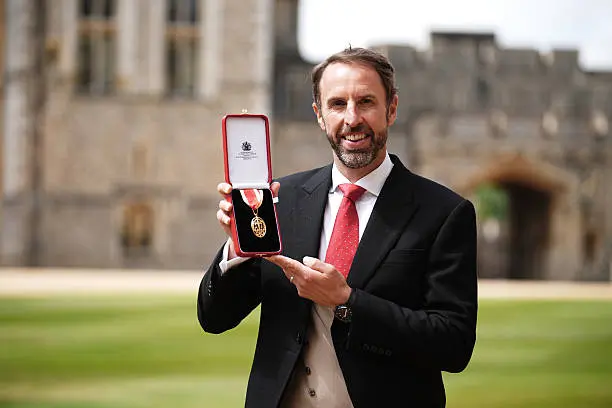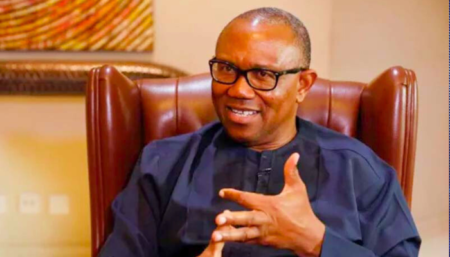Gareth Southgate has officially joined football’s most elite ranks after being knighted at Windsor Castle on Wednesday. The former England manager, 54, was honoured for his services to football following his departure from the national team after Euro 2024.
The knighthood places Southgate among just six other football managers who have received the distinction: Sir Alf Ramsey, Sir Matt Busby, Sir Alex Ferguson, Sir Bobby Robson, Sir Kenny Dalglish, and Sir Walter Winterbottom. Remarkably, like Winterbottom, Southgate is one of the few knights not to have lifted a major trophy as a manager.
Despite never capturing international silverware, Southgate’s influence on English football is undeniable. He took charge of the national team in 2016 during a turbulent period, following Sam Allardyce’s abrupt departure. Over nearly eight years, he rebuilt the team’s reputation, brought them to within touching distance of trophies, and rekindled national pride in the Three Lions.
Southgate’s record includes a semi-final finish at the 2018 World Cup, a runner-up spot at Euro 2020 (delayed until 2021), and another final at Euro 2024, where England fell 2-1 to Spain. These close calls earned him the reputation of a “nearly manager,” but they also highlighted England’s consistent return to the upper echelons of international football.
Beyond results, Southgate’s legacy is built on leadership, dignity, and diplomacy. He made the England shirt lighter, restoring joy and unity to the national side. His tenure was marked by the re-engagement of fans and a cultural reset within the team—a transformation as valuable as any silverware.
He was never afraid to make hard decisions, whether it was phasing out Wayne Rooney early in his tenure, cutting Jack Grealish from the Euro 2024 squad, or standing firm on his principles in the face of political and social controversies.
Southgate’s leadership extended beyond the pitch. He famously addressed racism head-on after England’s 6-0 win over Bulgaria in 2019, when the match was twice halted due to racist abuse. He also acknowledged the disappointment felt by LGBTQ+ fans during the 2022 Qatar World Cup, after England abandoned plans to wear the ‘OneLove’ armband due to FIFA’s disciplinary threat.
For all his politeness and poise, Southgate showed plenty of grit too. As a manager, he made bold tactical decisions, stuck by his convictions, and weathered both praise and criticism with the same composure. Though some critics labelled his tactics conservative, few could question his integrity or the long-term progress made under his watch.
However, not all moments were triumphant. Southgate’s relationship with England fans soured during rough patches—most notably in 2022 when he was booed at Molineux. The atmosphere turned tense again during Euro 2024, where dull performances led to jeers and beer cups thrown after a draw with Slovenia.
Still, Southgate marched on, leading England to another final, albeit in a campaign that lacked joy and inspiration. Following the narrow defeat to Spain, his resignation felt inevitable—a dignified end to a demanding era.
Now, Sir Gareth Southgate’s name is etched into English football history—not merely as a manager of close calls, but as a transformative figure. His knighthood, awarded by the Prince of Wales, who once called him “an all-round class act,” is a fitting tribute to a man who served his country with honour and humility.
As the curtain falls on his managerial tenure, Southgate leaves behind a legacy built not just on results, but on values. He made England believe again. He made the players dream again. And now, deservedly, he walks among the game’s greatest.









